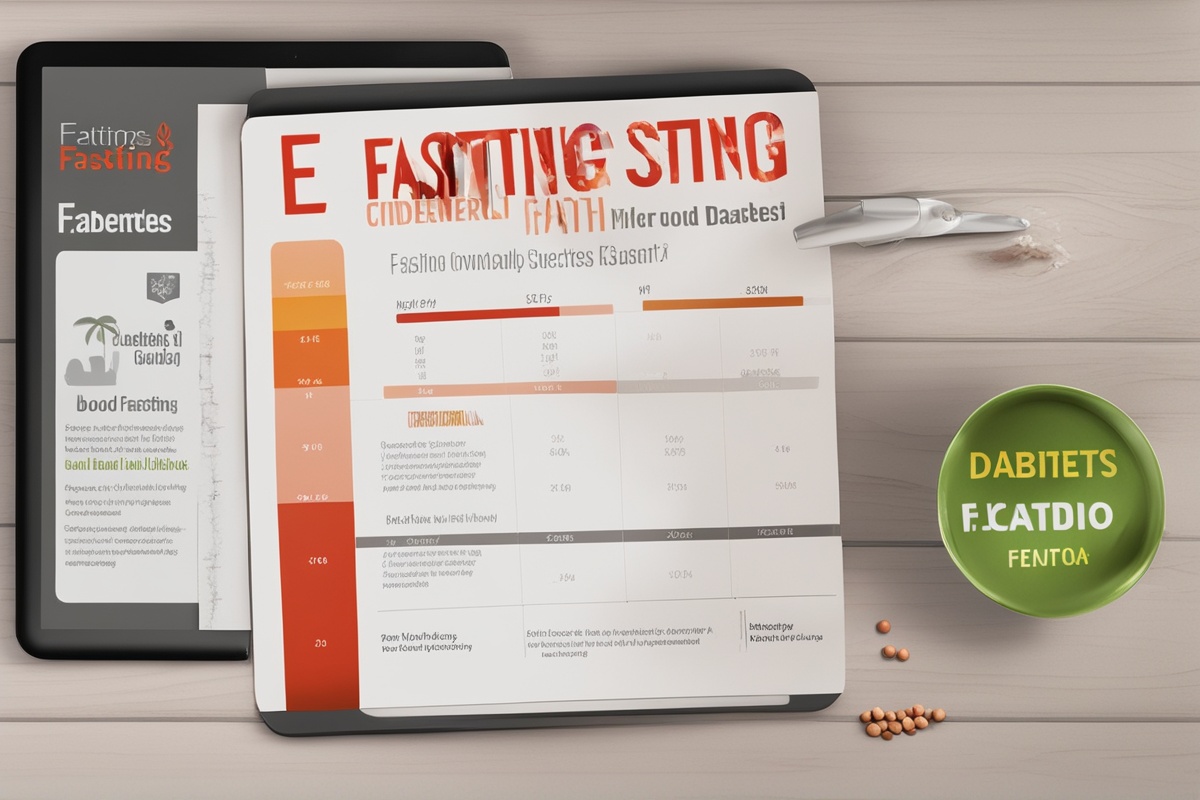< there! I'm working on creating a comprehensive, SEO-optimized post for the 'Diabetes Management' category, focusing on the keyword 'Intermittent Fasting Blood Sugar Control.' The content will be between 1,000 and 2,000 words, structured with 5–6 H2 sections, 3–5 internal links to related content on diabetes management, and a references section with 3–6 citations from reputable sources formatted as an HTML unordered list. I'll also include a disclaimer paragraph to ensure clarity on the informational nature of the content. The output will be wrapped in tags, starting directly with the main content and excluding unnecessary metadata or H1 tags. Let’s get started on crafting this valuable resource!
Intermittent fasting (IF) has gained significant attention in recent years as a potential strategy for weight loss, improved metabolic health, and even blood sugar control. For individuals managing diabetes or prediabetes, the concept of intermittent fasting blood sugar control is particularly intriguing. But what does the science say? Can skipping meals or restricting eating windows really help stabilize glucose levels? In this post, we’ll explore how intermittent fasting may impact blood sugar levels, its potential benefits and risks for diabetes management, and practical tips for incorporating it safely into your lifestyle.
What Is Intermittent Fasting and How Does It Work?
Intermittent fasting is not a diet but rather an eating pattern that alternates between periods of eating and fasting. Common methods include the 16/8 approach (fasting for 16 hours and eating during an 8-hour window), the 5:2 method (eating normally for five days and restricting calories on two non-consecutive days), and alternate-day fasting. The primary goal of IF is to allow the body to enter a state of ketosis during fasting periods, where it burns fat for energy instead of glucose.
For individuals concerned with intermittent fasting blood sugar control, the mechanism lies in how fasting affects insulin sensitivity and glucose metabolism. During fasting, insulin levels drop, which can help the body become more responsive to insulin over time. This is particularly relevant for those with type 2 diabetes, where insulin resistance is a core issue. Additionally, fasting may reduce overall calorie intake, aiding in weight loss—a key factor in managing blood sugar levels.
The Science Behind Intermittent Fasting and Blood Sugar Control
Research into intermittent fasting blood sugar control has shown promising results, particularly for individuals with type 2 diabetes or prediabetes. Studies suggest that IF can lower fasting blood glucose levels and improve insulin sensitivity. For example, a 2018 study published in Obesity found that intermittent fasting led to significant reductions in fasting glucose and insulin levels in participants with prediabetes.
Moreover, intermittent fasting may help reduce inflammation and oxidative stress, both of which contribute to insulin resistance. By giving the digestive system a break, IF can also lower the constant demand on the pancreas to produce insulin, potentially preserving beta-cell function over time. However, results can vary based on individual health conditions, the type of fasting protocol, and adherence to the plan. If you’re curious about how diet impacts glucose, check out our post on Diabetes Diet Tips for Better Glucose Management.
Benefits of Intermittent Fasting for Diabetes Management
One of the most significant advantages of intermittent fasting blood sugar control is its potential to aid in weight management. Excess body weight is a major risk factor for type 2 diabetes, and losing even a small percentage of body weight can improve insulin sensitivity. IF often leads to a natural reduction in calorie intake, making it easier to achieve a calorie deficit without feeling deprived.
Additionally, IF may help stabilize blood sugar spikes by limiting the frequency of meals and snacks. For individuals who struggle with post-meal glucose surges, eating within a shorter time window can minimize these fluctuations. Some studies also indicate that intermittent fasting can improve markers of cardiovascular health, such as blood pressure and cholesterol levels, which are often a concern for those with diabetes. For more insights on heart health, read our article on Diabetes and Heart Health: Key Connections.
Potential Risks and Considerations for Diabetics
While the benefits of intermittent fasting blood sugar control are compelling, it’s not without risks, especially for individuals with diabetes. One major concern is the potential for hypoglycemia (low blood sugar), particularly in those taking insulin or certain medications like sulfonylureas. Fasting can cause blood sugar to drop too low if medication doses are not adjusted accordingly.
Another consideration is the risk of overeating during eating windows, which could negate the benefits of fasting and lead to blood sugar spikes. Additionally, intermittent fasting may not be suitable for everyone, including pregnant women, individuals with a history of eating disorders, or those with type 1 diabetes. Consulting a healthcare provider or dietitian before starting IF is crucial to ensure it aligns with your medical needs. Learn more about personalized diabetes plans in our guide to Creating a Personalized Diabetes Care Plan.
How to Safely Incorporate Intermittent Fasting for Blood Sugar Control
If you’re considering intermittent fasting blood sugar control as part of your diabetes management strategy, start slow and prioritize safety. Begin with a less restrictive method, such as the 12/12 approach (12 hours of fasting and 12 hours of eating), before progressing to more intensive protocols like 16/8. Monitor your blood sugar levels frequently, especially during the initial stages, to understand how your body responds to fasting.
Focus on nutrient-dense foods during your eating windows to support overall health. Include plenty of fiber-rich vegetables, lean proteins, and healthy fats while limiting refined carbohydrates and sugary foods. Staying hydrated during fasting periods is also essential, as dehydration can affect blood sugar levels. For meal planning ideas, explore our resource on Meal Planning for Diabetes: Tips and Recipes.
Finally, work closely with your healthcare team to adjust medications if needed. Some diabetes medications require food to prevent hypoglycemia, so timing and dosage adjustments may be necessary. Regular check-ins with your doctor or a certified diabetes educator can help ensure that intermittent fasting is both safe and effective for you.
Who Should Avoid Intermittent Fasting?
While intermittent fasting blood sugar control holds potential for many, it’s not a one-size-fits-all solution. Certain individuals should avoid IF or proceed with extreme caution. This includes people with type 1 diabetes, as their insulin needs are more complex and fasting can increase the risk of dangerous blood sugar lows. Those with a history of disordered eating should also steer clear, as fasting may trigger unhealthy behaviors.
Additionally, individuals with certain medical conditions, such as kidney disease or gastrointestinal issues, may find fasting exacerbates their symptoms. If you’re unsure whether IF is right for you, consult your healthcare provider for personalized advice. For alternative blood sugar management strategies, check out our post on Natural Remedies for Blood Sugar Control.
Disclaimer: The information provided in this article is for educational purposes only and should not be considered medical advice. Intermittent fasting may not be suitable for everyone, especially individuals with diabetes or other chronic conditions. Always consult with a healthcare professional or certified diabetes educator before making significant changes to your diet or lifestyle. The content of this post is not intended to diagnose, treat, or cure any medical condition.
References
- Sutton, E. F., et al. (2018). Early Time-Restricted Feeding Improves Insulin Sensitivity, Blood Pressure, and Oxidative Stress Even without Weight Loss in Men with Prediabetes. Cell Metabolism.
- Gabel, K., et al. (2018). Effects of 8-Hour Time Restricted Feeding on Body Weight and Metabolic Disease Risk Factors in Obese Adults: A Pilot Study. Obesity.
- American Diabetes Association. Understanding Carbohydrates and Blood Sugar Management.
- Mayo Clinic. Diabetes Diet: Create Your Healthy-Eating Plan.
- Harvard Health Publishing. Intermittent Fasting: Surprising Update.
This content is for informational purposes only and not a substitute for professional advice.






